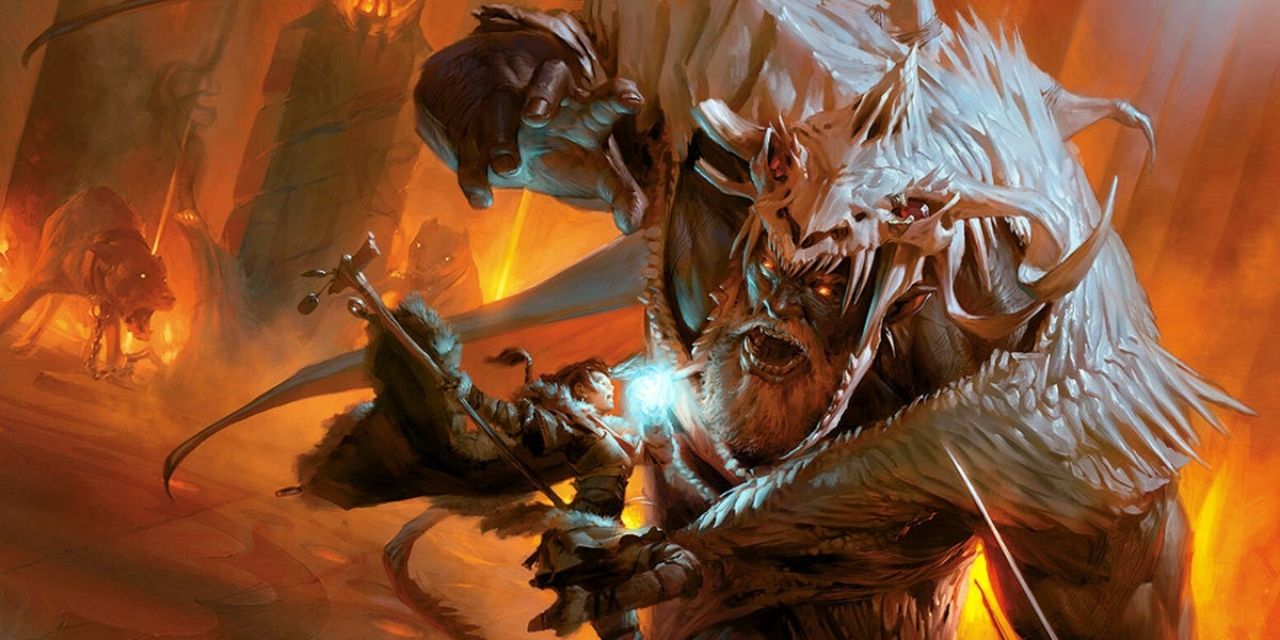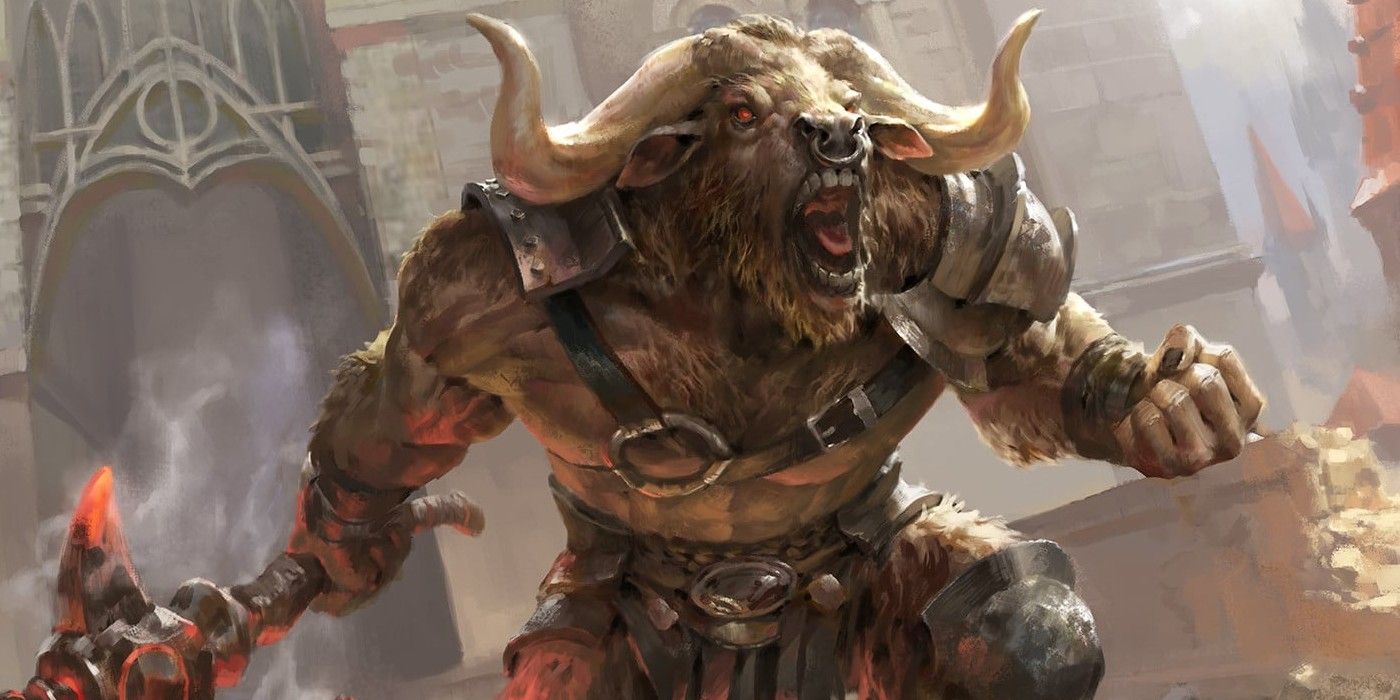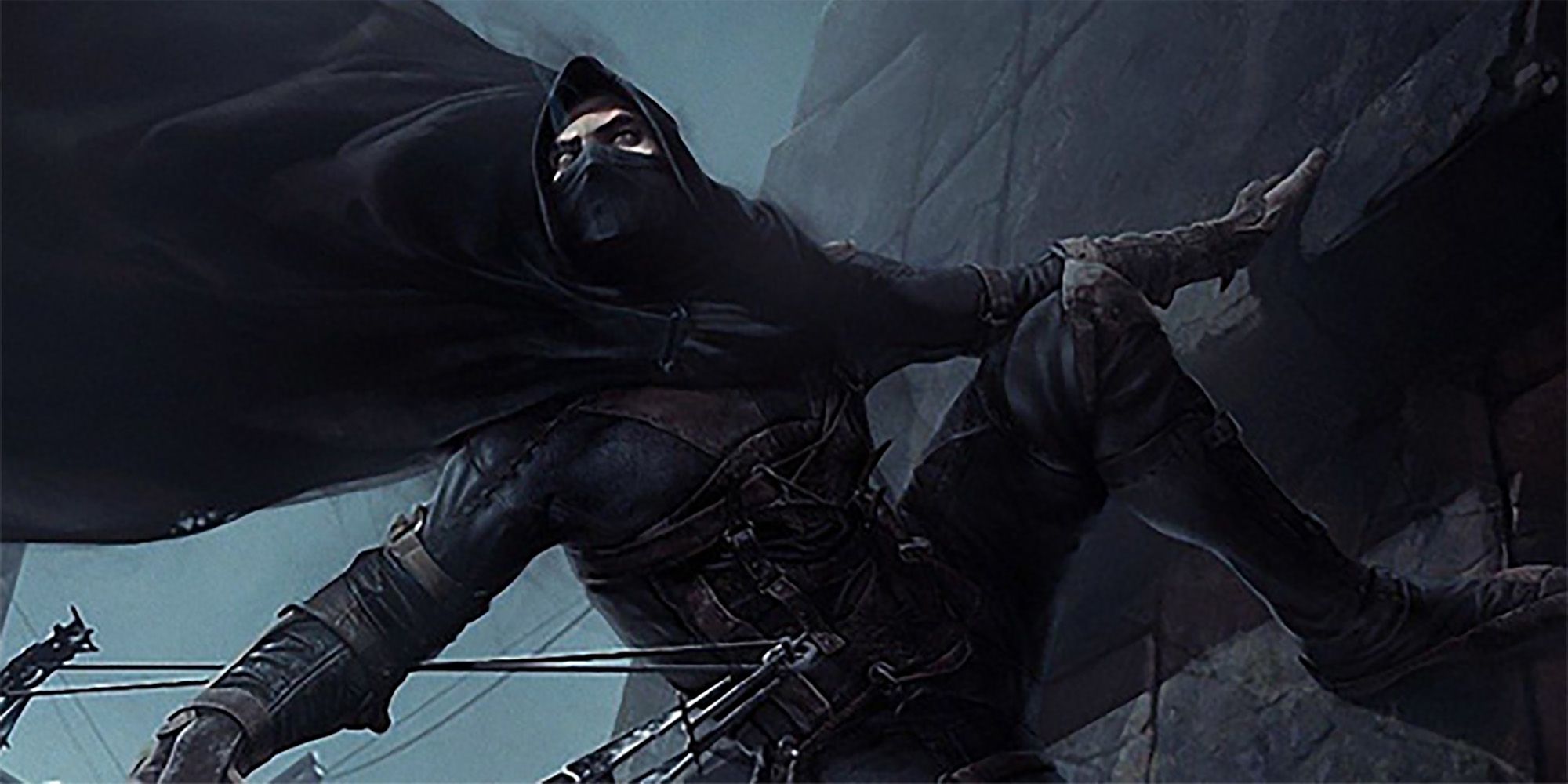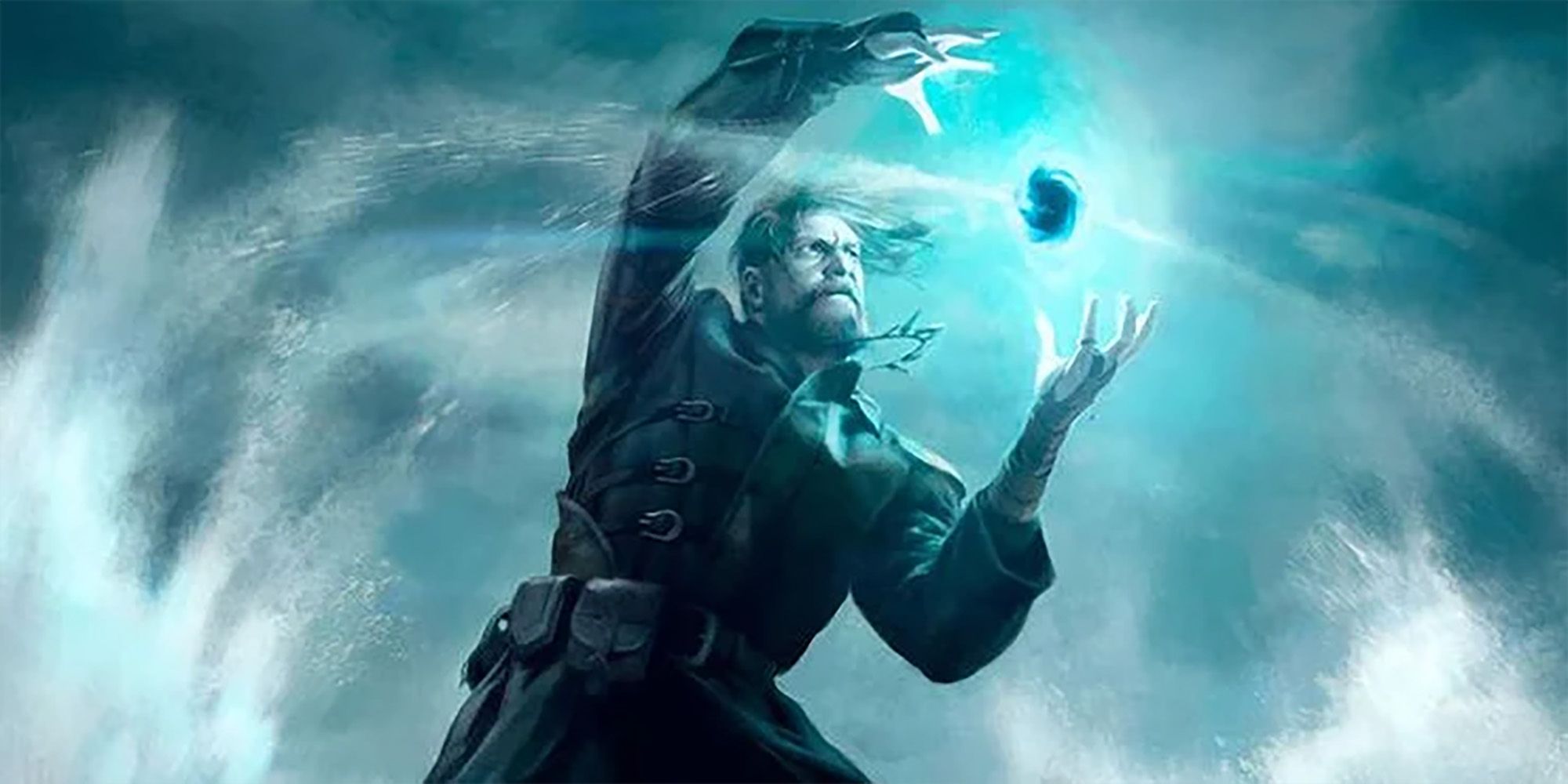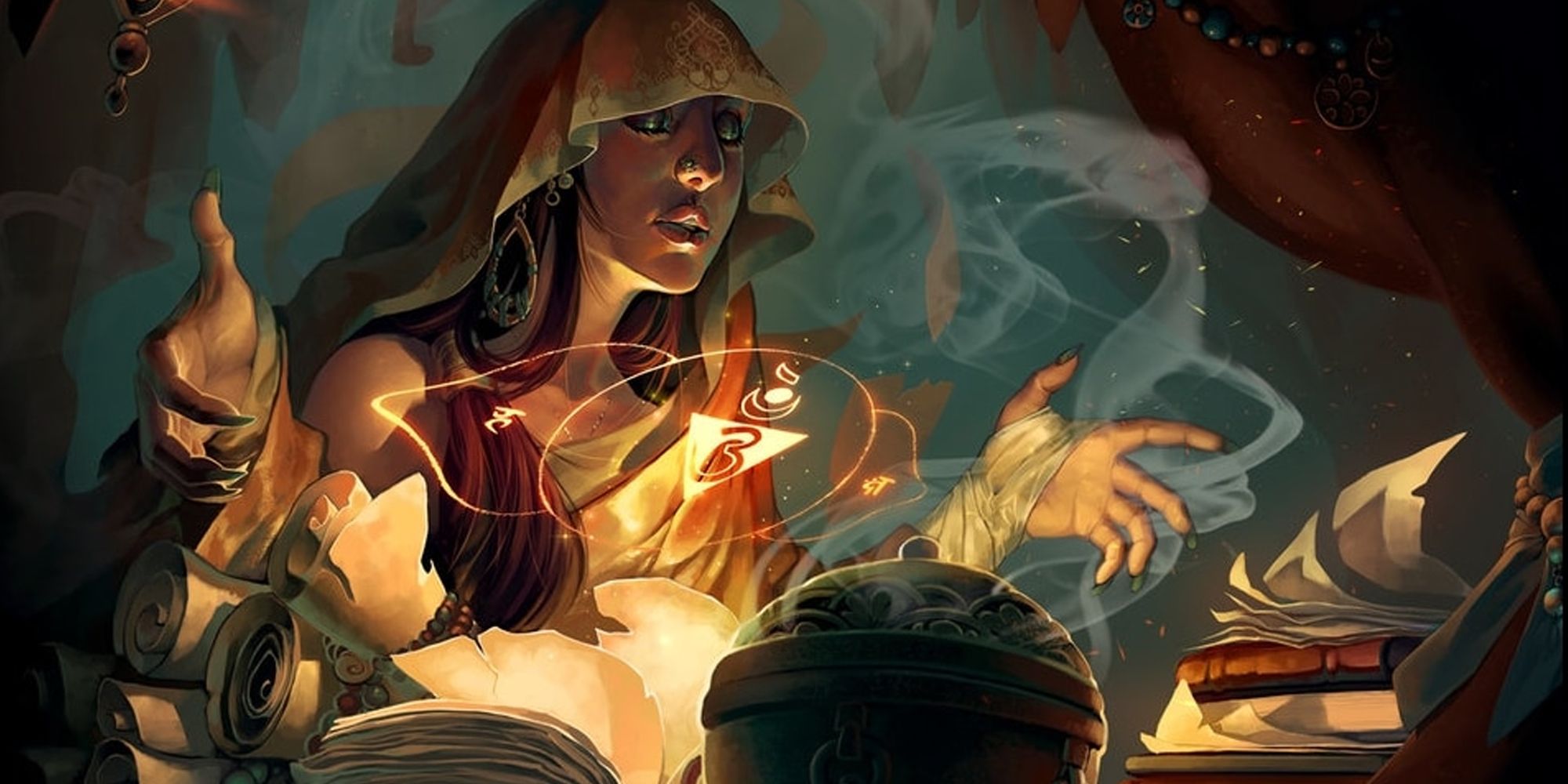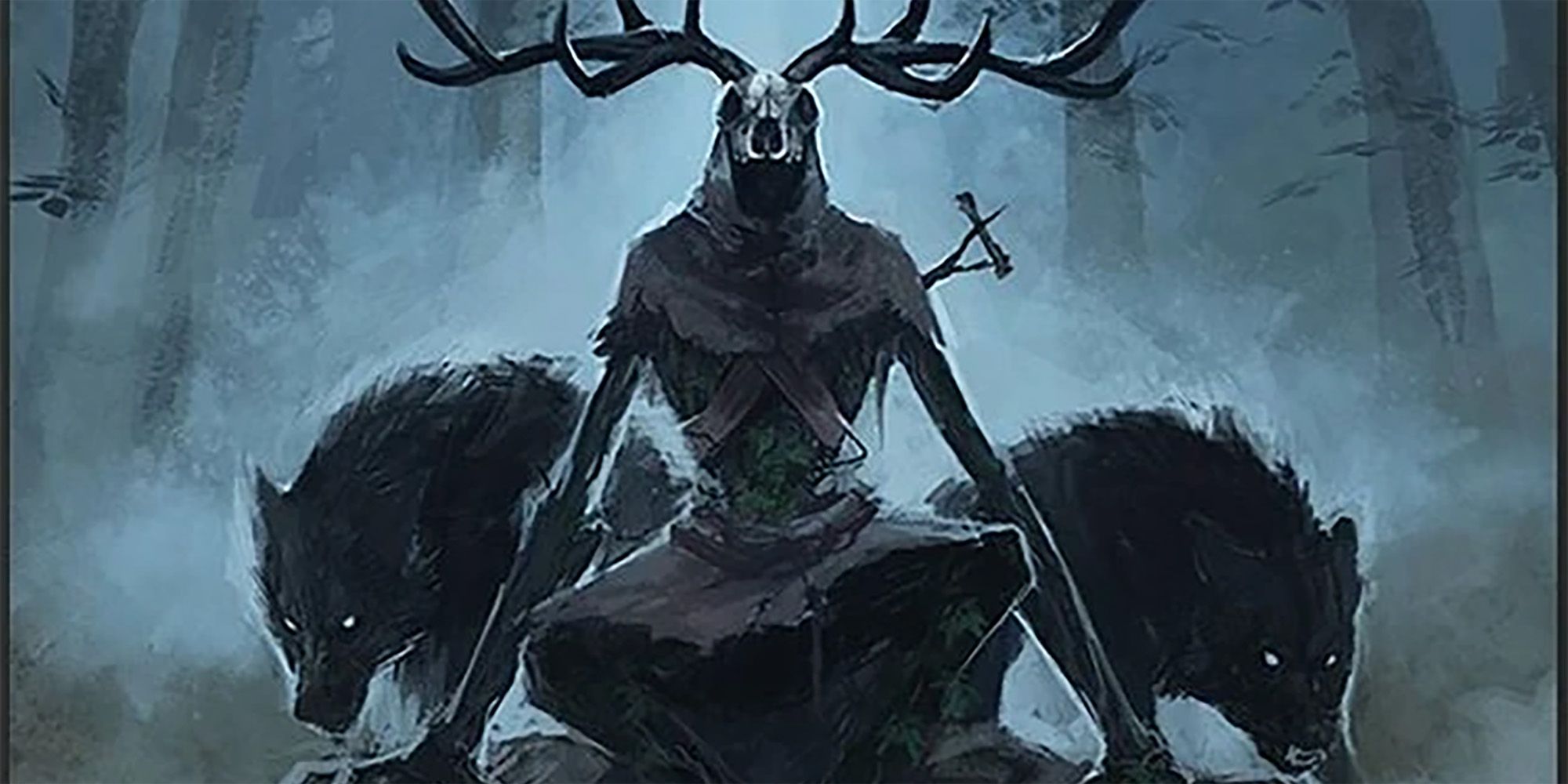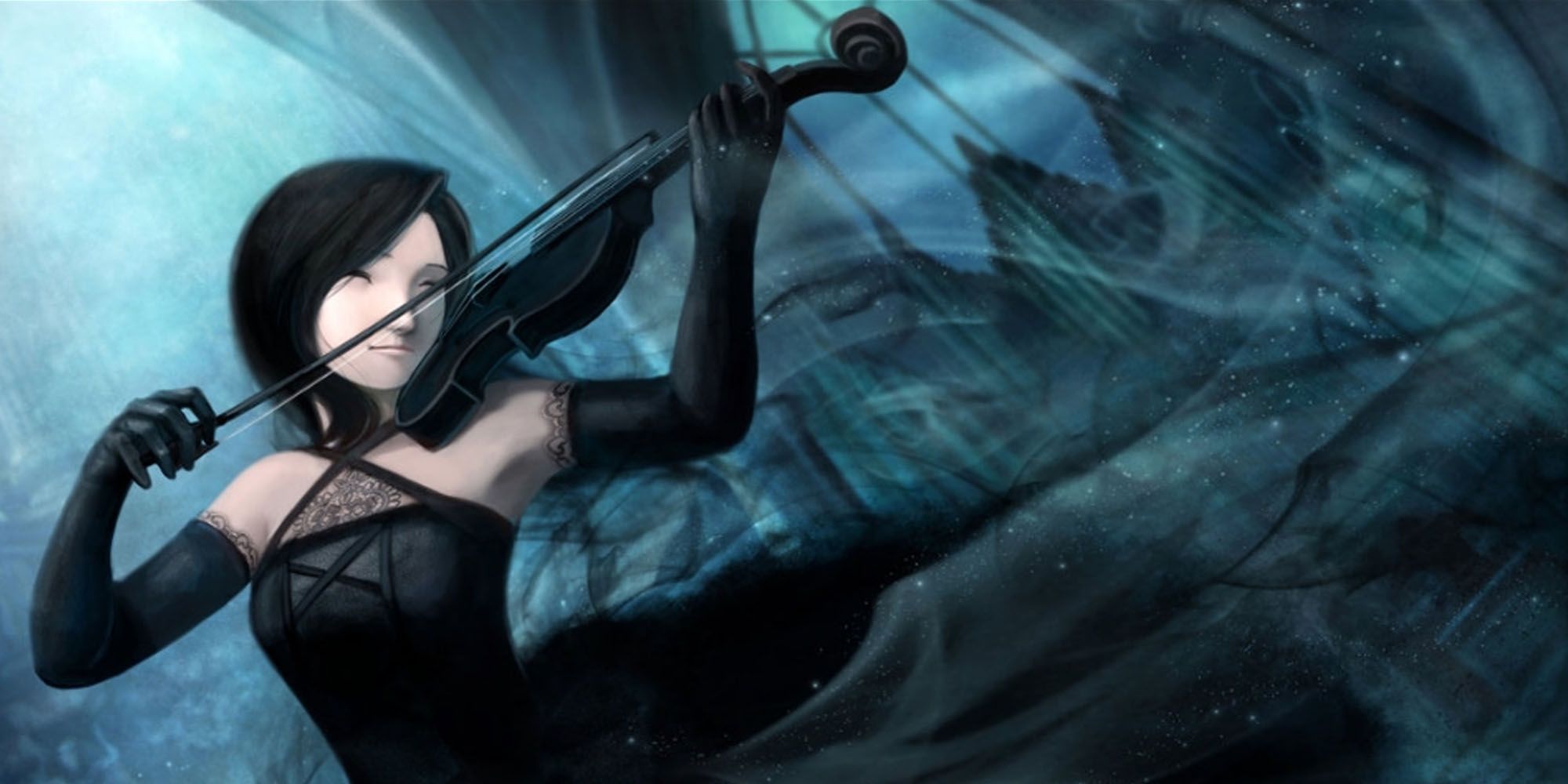Dungeons & Dragons relies on a number of actions players take as they role-play and fight their way through the world they are exploring. The success or failure of nearly every action is dependent on the player character's skill with the six core stats that determine their abilities and how well they can perform various tasks.
Strong characters can carry more items and wield heavier weapons. Charismatic characters can influence and convince others to do their bidding or cower in their wake. Intelligent characters may see even the most minute details that lesser-aware creatures would miss. Each of the core stats heavily influences player ability in certain areas, but not everyone can be good at everything. A strong adventuring party will have different characters who are the best at what they do, with someone else being able to over for their weakness with their own strengths.
Strength Measures Physical Power
Strength is one of the most obvious statistics. It determines a character's athletic abilities, how much they can carry, how far they can throw or push things, how hard they swing their weapons and how much damage they deal when those weapons hit. STR is the primary stat for Barbarians, Paladins and Fighters, all of whom spend most of their battle time in physical melee combat.
The game's stats influence a player's different skill checks, but Strength only affects one skill: Athletics. When a character wants to perform a physical task such as knocking down a door or rolling a massive piece of debris blocking the entryway to an old ruin, Athletics determines their success. The higher the player's STR score, the higher the modifier they add to their dice roll, and the more likely they are to actually carry out the task.
Some character races are naturally stronger than others, with Mountain Dwarves, Half-Orcs and Dragonborn all receiving an automatic +2 Strength bonus during character creation. Fortunately, the other five stats combine with STR to ensure the character can do more than just carry their weight.
Dexterity Measures Agility & Balance
Dexterity is a key statistic when determining how quietly and gracefully a character moves. Unlike Strength, DEX is involved when approaching a difficult task with a more balanced action rather than brute force. DEX is imperative to characters like Monks, Rangers, Fighters and Rogues, who tend to require finesse to successfully perform their duties.
DEX influences the success of skills like Acrobatics, Stealth and Sleight of Hand. When the party needs to sneak through a hidden alcove undetected, their success is reliant on each party member's Stealth check. When leaping across a disintegrating rope bridge missing boards, Acrobatics determines the agility of the character making the attempt. Reaching into someone's pocket to try and steal something, a good modifier to their Sleight of Hand will more than likely ensure their success.
Some races are naturally more graceful and dexterous than others. All subraces of Elves and Gnomes are naturally granted +2 to their DEX, which can potentially make them more efficient when it comes to getting into places unnoticed. DEX is also an essential factor when determining a player's armor class, initiative and their attack bonus when it comes to ranged weapons.
Constitution Determines How Much One Can Withstand
When it comes to battle, the player's Constitution is an essential statistic in determining how hearty they are. CON is the primary stat when it comes to hit points, meaning the higher the CON modifier, the more hit points the character has. CON has no influence over a character's skillset, but it does play an essential role in battle -- especially when concentration-based magic is involved. When a caster lets loose an ongoing spell, taking damage may force them to lose concentration and drop the spell. The higher the spellcaster's CON modifier is, the more likely they are to survive the damage and keep the magic flowing.
CON dictates how well a creature handles being poisoned, whether or not they can hold their liquor, or if they double over in agony when punched or stabbed. Dwarves tend to be the most hearty of races, starting out the game with and automatic +2 to their CON. This essential stat also affects how many hit points a player can gain when leveling up, as their CON modifier is added to their hit dice roll to determine how hearty they are going forward.
Intelligence Measures How Much Information Can Be Retained & Understood
Often confused with Wisdom, Intelligence is an entirely different skillset. A character can be book smart (INT), but have absolutely no common sense (WIS). INT is incredibly important for Wizards and Artificers, who rely heavily on their studied knowledge to cast spells they've learned or create working inventions that are as practical as they are useful.
Spellcasting modifiers for Wizards and Artificers both determined INT, as they have likely spend years immersed in learning their craft. When it comes to skill checks, INT heavily influences skills like History, Arcana, Religion, Nature and Investigation. Following a mystery or studying a crime scene requires an intelligent mind to suss out clues or make sense of encrypted information.
Gnomes are some of the most intelligent creatures, starting out the game with an automatic +2 INT. Various types of Tiefling, Hobgoblins, Yuan Ti Purebloods and Gith are also relatively intelligent, starting the game with +1 INT.
Wisdom Determines a Character's Intuition & Common Sense
Common sense and intelligence do not always go hand in hand. Someone who has spent the sum of their days learning about life through experience is far more likely to be wiser than a student who has been tucked behind a book reading and expanding their knowledge. Wisdom is an essential stat for Druids, Rangers, Monks and Clerics, who rely on their experience to guide through the world.
Affecting skills like Animal Handling, Insight, Perception, Medicine and Survival, WIS is a core stat for those who rely on instinct and experience to keep them safe or get them where they need to go. Many races are born with a hint of wisdom, but Firbolgs and Kalashtar are among the wisest of races with a +2 WIS during character creation. Firbolgs often make outstanding Clerics and Druids, drawing from the wisdom of ages to guide and influence their paths.
Charisma Determines How Well One Influences Others
Not everyone can sweet talk, convince or intimidate others, but those with a high Charisma stat tend to be naturally charming. Those with low CHA struggle to make friends and influence people, which may not mean much if their best friend is a bloodthirsty axe, but to characters like Bards, it is an essential tool for winning over audiences, negotiating with people and ensuring that just about everyone they meet is absolutely charmed by their mere existence.
Imperative to casters like Bards, Warlocks, Sorcerers and Paladins -- each for similar reasons -- CHA is the primary spellcasting stat. For example, Warlocks, who gain their power through a pact, need the skills to negotiate with their patron to maintain and grow their power. Charisma impacts skills like Deception, Performance, Intimidation and Persuasion, all of which require the ability to sway others toward the player's way of thinking.
There are a number of races who are born with +2 CHA, including Half-Elves, Verdan, Tieflings, Satyrs, Aasimar, Yuan-Ti Purebloods and Changelings. Four other races have +1 CHA boost, so players looking for CHA have a lot of options.

